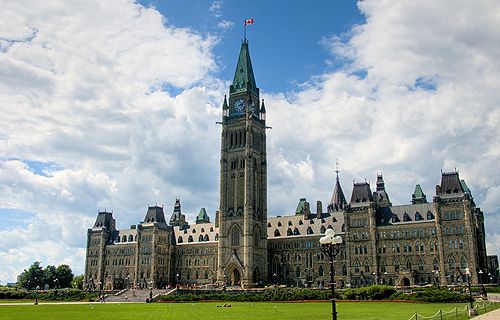Canada’s decision to defund its Office of Religious Freedom will harm the country’s ability to defend religious minorities and human rights in general, said religious freedom advocates and other supporters of the office.
“If Canada shuts down its Office of Religious Freedom, it will not just harm religious freedom, but Canada’s ability to promote all other human rights,” attorney Gerald Chipeur told CNA March 21. Chipeur is an allied attorney with the Alliance Defending Freedom legal group and partner with the Miller Thomson law firm in Calgary.
He responded to the government’s decision to end funding for Canada’s Office of Religious Freedom, which ends on March 31.
“The reality is this that in countries where religious freedom is not protected, you will find most other freedoms are also not protected,” he said. “In fact, there is a direct correlation between the guarantees of religious freedom and the guarantees of other human rights and democracy.”
“Religious freedom is the most important discussion one can have,” he said. “You can talk about trade, defense, and other issues, but if you aren’t first talking about religious freedom, then you will miss a very important opportunity to promote human rights and democracy.”
On March 21 the Liberal Party, led by Prime Minister Justin Trudeau, voted against a motion by Conservative MP Garrett Genius to extend funding for the office for another term.
The motion was voted down 226 to 90, with the NDP, Bloc Quebecois and Green Party leader Elizabeth May all siding with the Liberal Party against funding.
Despite the result, Chipeur said other countries can still positively influence Canada’s decision.
“The U.S. government should step in and urge Canada not to go down this road,” he said. “Australia, the U.K., France, and other countries where there is a long tradition of constitutional protections of religious freedom, should stand up and plead with Canada to not to shut it down.”
Foreign Minister Stephane Dion was among the opponents of the motion to fund the office. He advocated a consolidation of human rights efforts.
“We have to consider whether it might not be more effective to combine all of Global Affairs Canada’s efforts to defend and promote human rights into a single office, to advance and to leverage the resources of the department and its embassy network around the world to advance this mission,” Dion said.
But Peter Stockland, a senior writer with the Canadian think tank Cardus, said that the minister’s explanation undermines religious freedom and why the office was established.
“Religious freedom is not a right that is on a continuum of rights that is indistinguishable from all others,” he said. “It is ineffective to lump all rights together and treat them equally,” Stockland told CNA March 23.
“To stop religious oppression and hatred, you need something that actually addresses violations against religious freedom, not a general office committed to a smorgasbord of rights,” Stockland explained. “The Office of Religious Freedom was established specifically to root out religious persecution.”
Barry W. Bussey, director of legal affairs for the Canadian Council of Christian Charities, said focusing on religious freedom does not devalue other rights.
“Having an Office of Religious Freedom does not mean that religious freedom trumps other human rights,” told CNA March 23. “It is simply that we are living in a time when religious freedom is in peril because of all that is happening on the international scene with respect to religious minorities.”
In 2013, former Prime Minister Stephen Harper named Andrew P.W. Bennett as the first Canadian Ambassador for Religious Freedom. During the 2011 federal election, Harper promised to create an office of religious freedom. He said the effort was inspired by the brutal assassination of Clement Shahbaz Bhatti, the Pakistani politician who criticized Pakistan’s strict blasphemy laws and defended victims of religious persecution.
With a $5 million dollar budget, the office has funded various projects in Nigeria, Ukraine, Pakistan, Myanmar and Iraq. The projects have focused on promoting religious tolerance in schools and helping religious minorities under threat.
Bussey explained that religious minorities will be adversely affected by the decision.
“Fundamentally, the office raised the profile of religious minorities and helped bring greater understanding between various religious groups,” he said. “Religious minorities are very disappointed that the office is closing.”
“Many minorities chose to settle in Canada and other western countries like the U.S., because they were fleeing persecution in their home state,” Bussey explained. “The creation of the Office for Religious Freedom showed religious minorities that their new country was concerned about their plight and the fate of their fellow believers back home. The closing of the office puts this concern in question.”
Although Dion voted against the office, the foreign minister said Canada will still “enhance and strengthen Canada’s fight for religious freedom everywhere.”
Bussey said that religious minorities will hold the government accountable.
“Religious minorities will be watching the Canadian government closely to see if it holds true to its promise to maintain the same level of concern about religious persecution as it did with the Office of Religious Freedom,” he said.
“These minorities have family members back in their home state and will watch very carefully what the government does with respect to religious freedom and the persecution of their fellow countrymen,” Bussey explained.
He said he hopes the Canadian government will keep its promise to value religious freedom.
“Once the office is closed, there is a real fear that religious freedom will get lost in the sea of other international concerns of the government,” Bussey concluded. “I hope the government will prove everyone with such fears wrong and that religious freedom will still be maintained as a high priority.”

